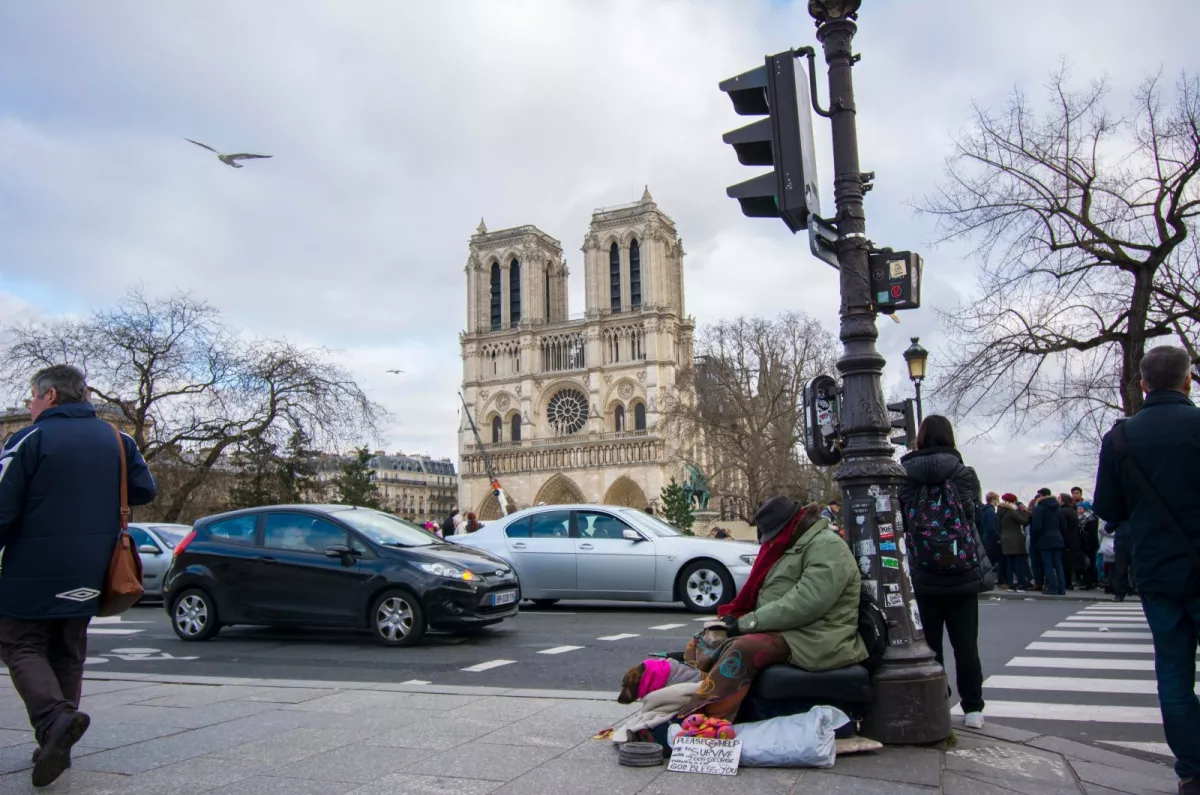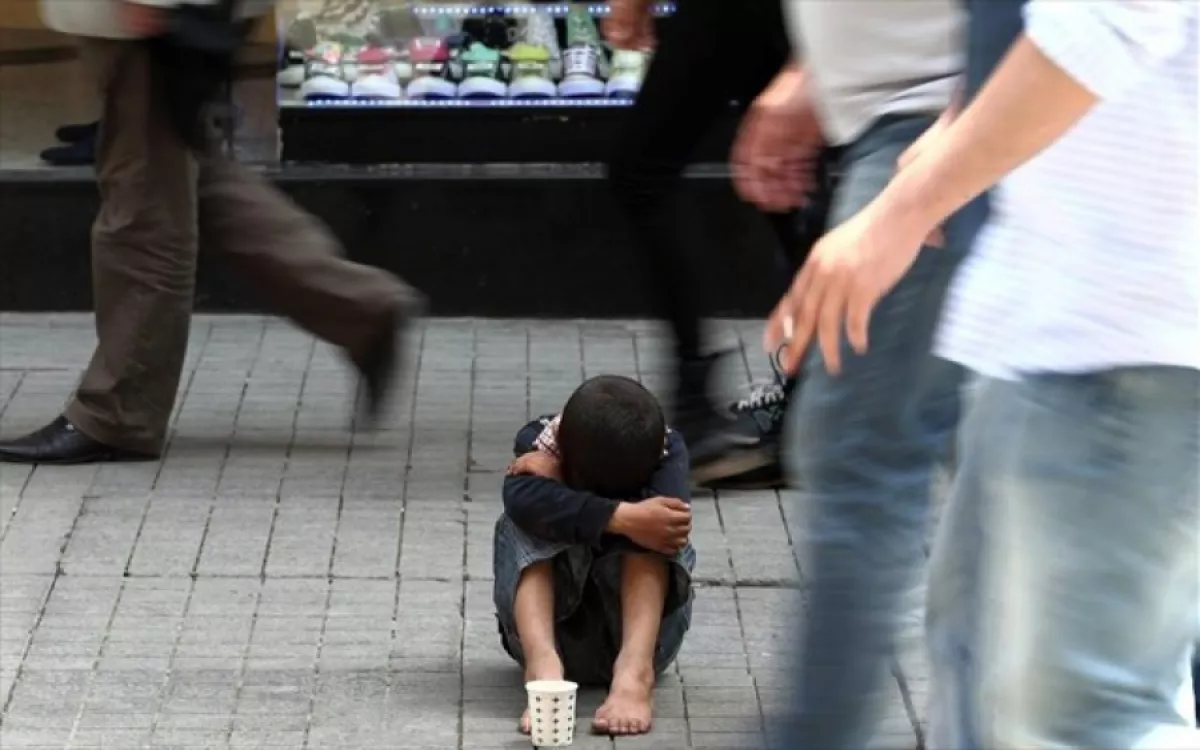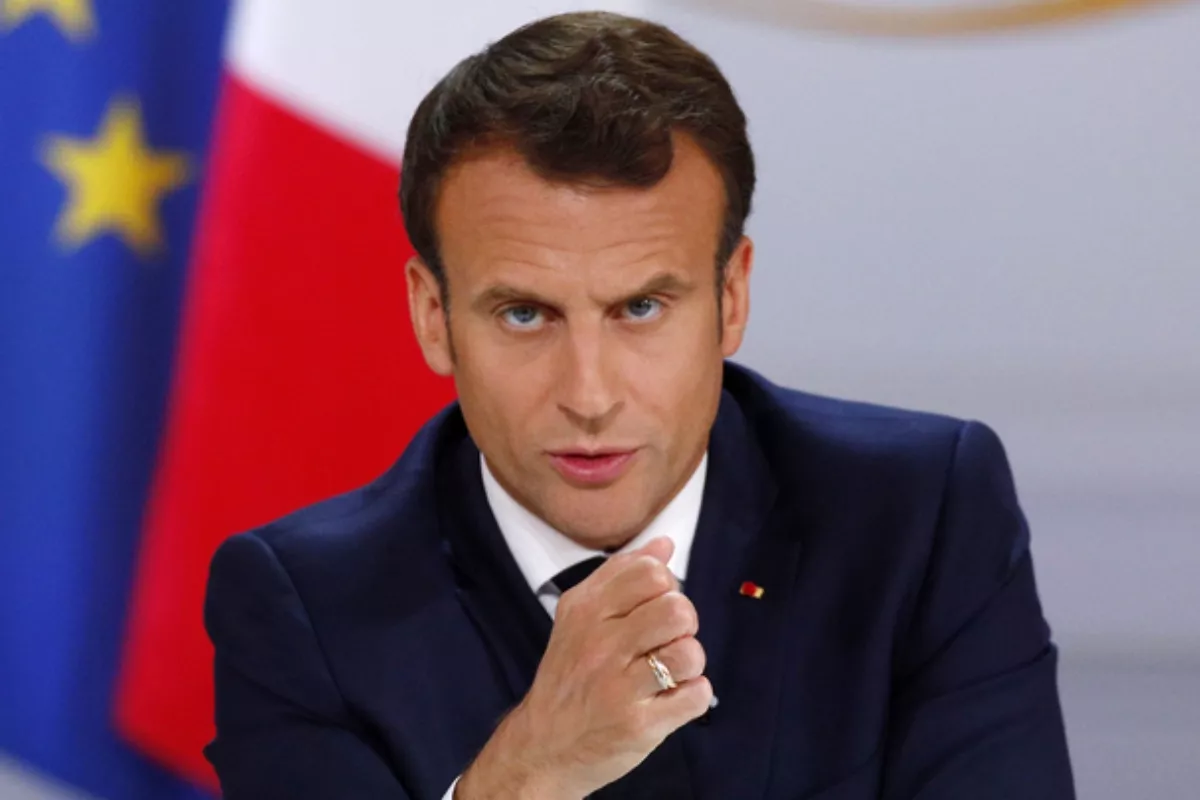French mathematics of survival Divided by class, multiplied by crisis
Recently published data indicate that the socio-economic situation for ordinary French citizens continues to deteriorate. Not only are the problems of the poor growing like a snowball, but there is also an increasing risk of falling to the bottom of society for those who still belong to the so-called “middle class”...
Progressive impoverishment or the poverty of progress?
According to the National Institute of Statistics and Economic Studies (INSEE) and the organisation Les Petits Frères des Pauvres ("The Little Brothers of the Poor"), nearly 10 million people in France are now living below the poverty line — that is, 15.4% of the population.

These figures for 2023 were made public in July of this year. And they represent a record high since 1996 — the year when such data collection began.
Looking at the overall trend, there was actually a certain decline in poverty between 1996 and 2004. But starting around 2008, the number of poor people in France began to rise sharply.
It is worth recalling that 2008 marked the beginning of a global recession in the capitalist economy. The most dramatic spike in impoverishment began around 2020.
Today, the official poverty threshold in France is €1,288 per month for a single person and €2,704 for a couple with two children. But the abundance of numbers should not be misleading. A metro ticket costs €2.50, rent for an apartment in Paris is around €3,000, and in the suburbs — about €2,000.
The price per square metre of housing in the French capital is €12,000, and a private kindergarten costs €730 a month.
At the same time, half of those living below the poverty line in France survive on less than €1,041 per month.
In just the most recent year of recorded data, 650,000 more French citizens fell below the poverty line — the largest annual increase in the past 40 years.
In 2023 alone, the poverty rate rose from 14.4% to a record 15.4%.
The gap between the richest 20% and the poorest 20% of French citizens has also grown dramatically, returning to levels not seen since the early 1970s. Meanwhile, the Gini coefficient — a key indicator of income inequality — rose from 0.292 to 0.297, approaching its 2011 peak.
On the margins of life
Who ends up on the margins of society most often? According to the report by Les Petits Frères des Pauvres, the breakdown is as follows: 36.1% of unemployed individuals live below the poverty line, as do 34.3% of single-parent families. Additionally, 21.9% of children are living in poverty. Poverty is also on the rise among the self-employed.

An increasingly vulnerable group is the elderly. Today, 10.6% of people aged 65 to 74 in France are living below the poverty line — a sharp rise from 7.5% just five years ago.
Moreover, 31% of elderly people struggle to pay their bills. Four in ten forgo going to restaurants or even inviting loved ones out. It's important to understand that in French culture, a restaurant visit is not considered a luxury — it’s closer to a casual dining experience or public canteen.
The Les Petits Frères des Pauvres report states: "When living alone leads a person into poverty, it deepens their isolation." More than half of those surveyed receive no welfare support and say they lack information about their entitlements.
Those living alone are particularly at risk: 18.8% of single elderly individuals live in poverty, compared to 6.4% of those with a partner. Many of them are older women who interrupted their careers, worked part-time, or relocated for their husbands — and who now find themselves in dire straits, especially if they also face loneliness after divorce or widowhood.
Yet today it’s not only pensioners, the unemployed, or other traditionally vulnerable groups who are falling into poverty. The structure of poverty is shifting. There is a growing phenomenon of the "working poor."
An increasing number of small-scale French entrepreneurs are barely scraping by. The incomes of those who still identify as part of the so-called “middle class” are steadily declining — and this trend has been unfolding for some time, now accelerating. In recent months, average salaries in Paris have dropped significantly, further undermining the already fragile position of the middle class.
That said, we are not intent on casting France in an unfairly negative light. Along with Finland and Austria, France ranks among the top EU countries in terms of GDP share allocated to social spending. However, as the current economic challenges show, even this is no longer enough.

Rising prices and inflation, combined with job cuts and declining real wages, are devouring everything. Under President Macron, there has also been a neoliberal rollback of social benefits and protections. France's budget deficit has now reached €150 billion. The reduction in social assistance has had a particularly severe impact on the living standards of the self-employed, the unemployed, and single-parent families.
Amid growing uncertainty about the near future — threats of job loss, transitions to part-time work, or outsourcing — the mental health of the French population is also deteriorating significantly.
The Les Petits Frères des Pauvres report highlights the ongoing rise in risk factors: precarious employment, housing difficulties for the younger generation, and increasing insecurity for pensioners.
As a response, the organisation proposes holding preventative consultations with the public to identify early those whose future pensions will fall below the poverty line. The activists at Les Petits Frères des Pauvres also recommend raising the minimum old-age pension (ASPA) to at least match the poverty threshold.
But all this amounts to mere drops in the ocean of growing social contradictions within the Fifth Republic. And, regrettably, instead of tackling domestic issues and addressing the root causes of the current crisis, Macron and his team continue to engage in political manipulation at home — and aggressive interference abroad…








